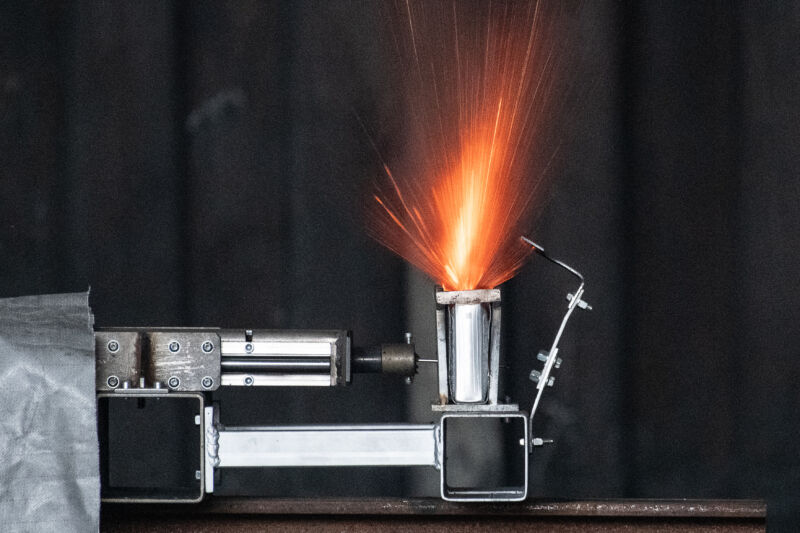
A firm that handles returned Amazon electronics has agreed to pay a $25,000 fine after lithium-ion batteries it threw away caused at least three different garbage truck fires.
iDiskk, LLC, based in San Jose, California, agreed to a settlement with the district attorney of Santa Clara County in late November over civil charges regarding improper waste disposal, as noted by E-Scrap News. The company, according to the district attorney's office, "dismantles, recycles, and disposes of consumer computer electronics that are returned through Amazon, some of which contain lithium-ion batteries."
On three different dates in 2021—September 22, October 6, and October 13—trucks picked up residential waste from iDiskk's office address in Campbell, California. A Google Street View look at the address shows a home with a driveway and garage on a tree-lined street. Dozens of lithium-ion batteries were included with typical recycling materials, allowing them to be crushed and compressed with other waste. "In each case, the ... garbage truck driver ejected the truck's load," the initial complaint reads, and the cause was found to be batteries.
Although nobody was hurt in the fires, the October 13 fire, while being dumped into the street to avoid a vehicle fire, caused the raised bin to catch on overhead utility lines. The attached utility pole broke and fell to the ground. “These fires are incredibly dangerous to the safety of the garbage truck drivers and first responders who must then act quickly to deal with the fire," said Deputy District Attorney Christopher Judge in a press release after the settlement.
While this case involves the owners of an e-waste business that (by law) should have known better than to toss batteries into standard recycling, batteries continue to be the leading cause of fires in the waste stream. A 2018 survey of recycling facilities by the California Product Safety Council found that 83 percent of 26 facilities had a fire in the two years prior, and 65 percent of them were caused by batteries. A study in MDPI by Austrian professors found that, amid increased numbers of fires and significant potential for damage, "No other substance or material has ever comparably endangered the whole waste industry" as discarded portable batteries.
Of course, some batteries end up in trash and recycling because there's nowhere better to take them. In many parts of the country, a Best Buy or Walmart that will take used electronics is the best option residents may have. Otherwise, the best options include hunting down a proper facility, hoarding them until your local politician hosts a hazardous waste event, or just stashing them away indefinitely (where at least they'll slowly lose charge).
Scientists have suggested solutions to making lithium-ion batteries less fire-prone. Stanford University researchers suggested in 2017 using built-in flame retardants as an anode/cathode separator, which would release when things get hot. Powdered silica in the electrolyte mix was proposed by Oak Ridge National Laboratory in 2018. Neither improvement, obviously, has gone mainstream.



3175x175(CURRENT).thumb.jpg.b05acc060982b36f5891ba728e6d953c.jpg)

Recommended Comments
There are no comments to display.
Join the conversation
You can post now and register later. If you have an account, sign in now to post with your account.
Note: Your post will require moderator approval before it will be visible.